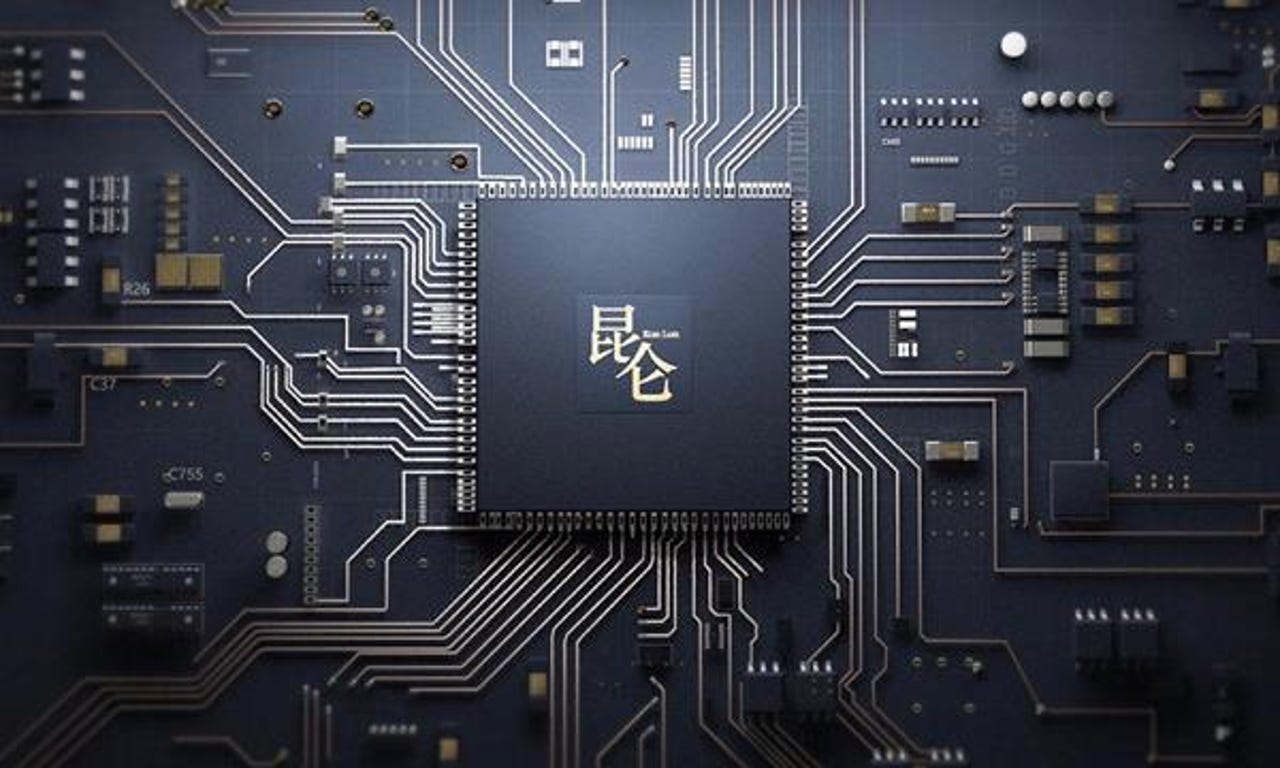Baidu creates Kunlun silicon for AI


Chinese search giant Baidu has announced a new AI-focused processor dubbed Kunlun, which the company claims is capable of handling both datacentre and edge workloads. Kunlun will include the 818-300 training chip, and the 818-100 for inference.
The company said it started developing a field-programmable gate array AI accelerator in 2011, and that Kunlun is almost 30 times faster. The chips are made with Samsung's 14nm process, have 512GBps memory bandwidth, and are capable of 260 tera operations per second at 100 watts.
"[Kunlun] leverages Baidu's AI ecosystem, which includes AI scenarios like search ranking and deep learning frameworks like PaddlePaddle," the company said. "Baidu's years of experience in optimising the performance of these AI services and frameworks afforded the company the expertise required to build a world-class AI chip."
"In addition to supporting the common open-source deep learning algorithms, Kunlun chip can also support a wide variety of AI applications, including voice recognition, search ranking, natural language processing, autonomous driving, and large-scale recommendations," Baidu said.
Given the recent threat to the ongoing existence of ZTE from a seven-year US-imposed ban on the importation of American components, which was eventually rescinded by US President Donald Trump, China is looking to ramp up its domestic processor production.
Speaking at the end of May, founder and CEO of Tencent, Pony Ma, said the ZTE furore showed China lacking key technologies such as processors and operating systems.
Ma said Tencent was looking to support the development of China's chip industry.
The Chinese government is looking to its Made in China 2025 plan to have domestic chips make up 40 percent of its needs.
Earlier, Intel had announced that Baidu would use its Movidius VPUs to power a new AI camera for retailers, called the Xeye.
Baidu, SoftBank, and King Long to delivery autonomous mini buses
Also on Wednesday, Baidu teamed up with Japanese SoftBank subsidiary SB Drive, and Chinese commercial vehicle manufacturer King Long to develop an Apolong self-driving mini bus for the Japanese market.
"In Japan, public transportation is facing a number of challenges, including traffic network reduction, driver shortage, and driver aging. We expect self-driving technology will solve these problems in the near future," CEO of SB Drive Yuki Saji said.
Currently, 100 Apolongs have rolled out the assembly line, and the vehicles are due to arrive in Japan in 2019.
Related Coverage
Baidu taps Intel VPUs to power AI retail camera
The new Xeye camera, which uses Intel Movidius VPUs, is one of multiple products from the Chinese search engine giant that leverages Intel's AI technology.
Lu transitioned into the COO slot last January after joining Baidu from Microsoft.
Baidu sees 2017 revenue climb 20 percent, eyes iQiyi IPO
Chinese search engine clocks US$13.03 billion in revenue for the year, with mobile generating 73 percent, and plans to take its online video subsidiary iQiyi public in the US.
Free PDF download: Tech and the Future of Transportation (TechRepublic)
This special report from ZDNet and TechRepublic examines the future of transportation and its impact on commuters, deliveries, and businesses. Download the entire report as a free PDF ebook.
Huawei signs AI mobile agreement with Baidu
Huawei and Baidu will work together on developing and building an open AI mobile ecosystem, including devices, technology, internet services, and content.